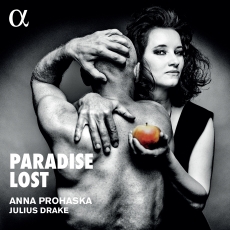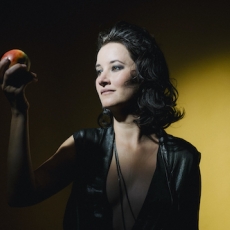Anna Prohaska - Bach: Redemption - Opera News
This rich, satisfying recording is almost too much to take in at once. Ingeniously programmed, the disc follows a smartly wrought path along Adam and Eve’s story, from the dawn of paradise through their passion, expulsion and reconciliation to earthly life. Each chapter is illustrated with a tantalizing mix of songs, some of which relate directly to the moment with references to apples, temptation or specific mentions of Adam and Eve, while others add resonance through inference. Although the composers range from Purcell to George Crumb and the languages from English to Russian, each chapter offers musical as well as textual logic, and the juxtapositions are illuminating. With her vibrant soprano and clear dramatic intentions, Prohaska is consistently surprising and engaging. Morning in paradise is described by birdsong, with Ravel’s modal “Trois beaux oiseaux du Paradis,” Bernstein’s primal “Silhouette,” which showcases Prohaska’s playfulness and her rich lower range, and, of course, Messiaen. In his “Bonjour toi, colombe verte,” the excellent pianist Julius Drake conjures the dove with insistent pecking and peeping. In Stravinsky’s seductive vocalise “Pastorale,” Prohaska intentional phrasing implies words that aren’t actually there. Some of the selections seem obvious, such as “Paradis,” from Fauré’s Chanson d’Ève, to herald Eve’s awakening. Here, Prohaska pours forth plush sounds tempered with a sense of innocence. When she sings of Eden stealing into the silence of a blue dream, her voice becomes a breath, awhisper that rests momentarily before bursting forth into Debussy’s “Apparition.” She unleashes a ribbon of ecstasy on the phrase “C’était le jour béni de ton premier baiser,” and the song builds into a passionate capitulation. Other selections are more obscure, like Aribert Reimann’s spikily atonal “Gib mir den Apfel” for the moment of temptation, which Prohaska tosses off confidently. This leads into Britten’s merely dissonant but tonally grounded “The Poison Tree.”What is temptation if not playing with fire? The section concludes, imaginatively, with the Fire’s aria from Ravel’s Enfant et les Sortilèges. The exodus section is the most musically fragmented, including Rachmaninov, Ives and Purcell, but this feels like a deliberate and appropriate choice, given the disorientation that banishment engenders. Unsurprisingly, Mahler’s “Das irdische Leben” anchors the earthy life section. When Prohaska sings as the starving child, she sounds like she’s already fading, while her impersonation of the mother is quietly but increasingly desperate. Drake’s final low note echoes with the profound finality of death. The song is preceded by Hanns Eisler’s wearily jazzy “Diese Stadt hat mich belehrt,” which contextualizes the entire journey with the phrase, “For the destitute, paradise is hell,” delivered by Prohaska with harsh resignation. After the Mahler, the dead are immortalized by Crumb’s “Wind Elegy.” Its tinkling piano arpeggios hark back to the first chapter, and it ends with a sense of calmness and closure. The recording rewards repeated listening, with new, subtle thematic connections to discover and a deepening appreciation of Prohaska’s intelligence and artistry.

